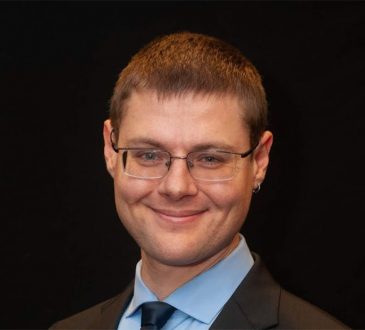Make no mistake, SMALL is the new big!

Organizations now operate in a period of economic globalization, open markets, hyper-competition and ever fast changing environment. They strive to build a culture of Collectivism, focused on team work and collaboration to get an edge over the competition. In their natural efforts of building, they involve many people from diverse teams and groups for all key projects and usually they end up as large and bigger teams.
The only trouble is “Social loafing” which curbs the efforts of making quick decisions and taking swift actions. Picture this: How many times have we all entered an all-important meeting and left the room without being able to make the decision or how many times have we struggled to understand why the project was not completed within the agreed timelines despite having a large team working on it. In both cases, the real culprit is what we thought all throughout to be the differentiator – Bigger teams – and therefore social loafing.
Ask the Ringelmann and he would explain this through The Ringelmann effect ‘ It is the tendency for individual members of a group to become increasingly less productive as the size of their group increases’. This is very true and I’m sure everyone of us would have noticed in our own organizations. Typically, when the team size is big, participants tend to loaf than they would have been if they worked individually. This is simply because they realize there is no pressure for them to be at their best given that they get away unnoticed even if their efforts are minimal. All of it works counter cyclically to the original strategic intent of the organization to put large teams in the first place, and further the results retrograde!
So how should organizations deal with social loafing? Here are four effective ways and all of them go hand in hand:
First, Small is the new BIG: Jeff Bezos, the founder and CEO of Amazon, said it beautifully through his ‘Two Pizza rule’ , which means, if the team cannot be fed with two pizzas, then the team size is too big. The idea is that more people you have working on the project more chaotic it can be, whereas smaller teams can make decisions faster and be in agreement. This is true given the pace of change organizations face and the need to be more agile than ever before. Gallup in its 2013 report called ‘The state of the American workplace’ found out the smallest companies have more engaged employees. This is a possible correlation of how large teams harbinger social loafing. Does this mean, invariably, collaborating with larger teams will not yield the desired results? The answer is ‘NO’. It just means it is much more powerful and effective with smaller teams given the need to cope up with this rapid change and uncertainty.
Second, Promote an Intrapreneur mindset: Have you noticed how successful entrepreneurs always collaborate with everyone to get ideas, recognize opportunities albeit balance it with quick decision making with risk taking ability. Intrapreneurship is a concept of being an entrepreneur while working inside an organization. The key advantage of promoting such a mindset is it drives Accountability and it is a natural game changer for any organization as accountability drives results. In simple words, accountability and social loafing are bipolar. It is almost a CEO in the making. Just imagine the possibility of every project being driven by a CEO. The key here would be to be in consensus within the team or group and that is most effective when the team sizes are small.
Third, Recognize the efforts of the smaller teams and allow first time mistakes: If you want results through smaller teams and Intreprenurship, then it is imperative that you build a culture which allows them to experiment for results. It makes them to be creative, take risks and importantly be bold. They are no longer caught up in the hierarchy or high power distance and work towards results. Further when you recognize their efforts, it builds TRUST — a differentiator between winning and losing companies. Just look at successful companies and you will realize that they are nothing today like what they were 3 to 5 years earlier. This is simply because they build trust with their people. Trust keeps social loafing at bay and a distinct advantage of trust is its direct link to innovation and generally such high trust workplaces embraces organizational change much more willingly.
Fourth, Coaching and Mentoring for the desired OCB: And finally, you need to inculcate coaching and mentoring as a way of life to instill the desired Organizational Citizenship Behavior (OCB). Discretionary effort or OCB is the level of effort people could give if they wanted to, but above and beyond the minimum required. For smaller but many teams to be successful, the only possible way to drive toward desired OCB is through coaching and mentoring in pockets. Any investment in coaching and mentoring yields results in multifold. PricewaterhouseCoopers, 2011 report sighted the ROI for companies that invest in coaching is 7 times the initial investment. Deloitte research brief, 2012 – retention is 25% higher for employees who have engaged in company-sponsored mentoring.
Many believe we are outpacing Moore’s law, which states technological processing power will double every 18 months. Remember, the current workforce globally is the most multi-generational and diverse and therefore it is super important to bring in inclusivity – but in smaller pockets – in a way that it balances both a higher engagement resulting in higher productivity and therefore desired business results.
Still thinking otherwise about smaller teams, put your trust in the research results published by CYBAEA through its popularly known 3/2 rule, which states ‘if you triple the number of employees you halve their productivity or when you increase the number of employees by 10%, then productivity falls by 6.3%.
Make no mistake, SMALL is the new big!
Written by Krishnan Bangaruswamy.
Have you read?
The World’s Safest Cities Ranking, 2019.
The Best Hotels In New Delhi For Business Travelers, 2019.
Best CEOs In The World 2019: Most Influential Chief Executives.
Countries With The Best Quality of Life, 2019.
World’s Best Countries To Invest In Or Do Business For 2019.
Bring the best of the CEOWORLD magazine's global journalism to audiences in the United States and around the world. - Add CEOWORLD magazine to your Google News feed.
Follow CEOWORLD magazine headlines on: Google News, LinkedIn, Twitter, and Facebook.
Copyright 2025 The CEOWORLD magazine. All rights reserved. This material (and any extract from it) must not be copied, redistributed or placed on any website, without CEOWORLD magazine' prior written consent. For media queries, please contact: info@ceoworld.biz












